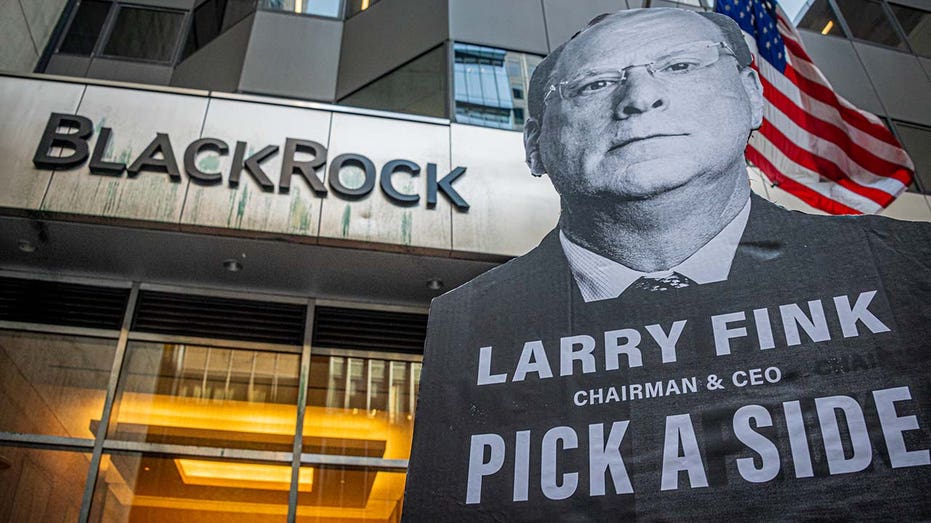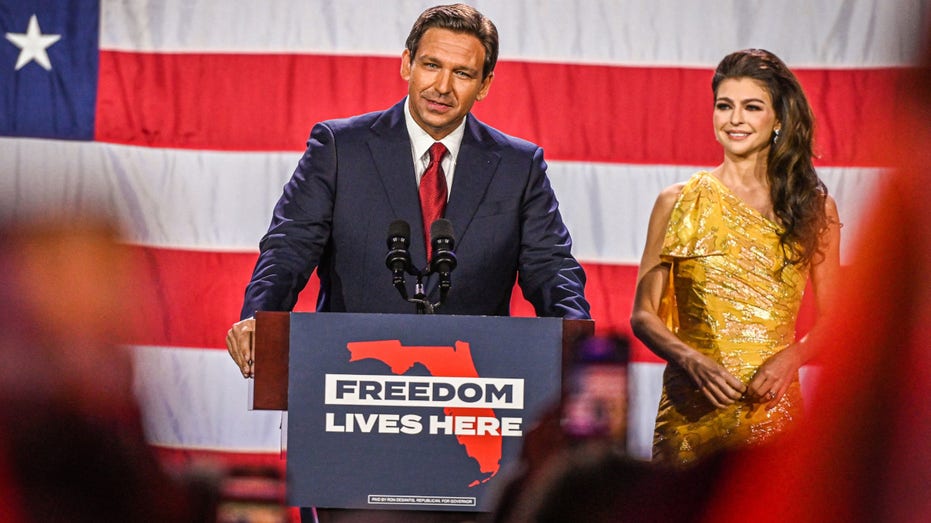Labor Department clears path for 401(k) plans to offer ESG funds
Few retirement plans currently give savers the option to make investments based on environmental, social and governance principles
Wall Street's ESG investing likely a violation of fiduciary duty: Louisiana AG
Louisiana Attorney General Jeff Landry says he's concerned about 'woke' Wall Street banks buying assets at the expense of other investments to enhance their social policy on 'Cavuto: Coast to Coast.'
More retirement savers could soon have the option to invest in funds based on environmental, social and governance principles, under final regulations issued by the Labor Department on Tuesday.
The new rule reverses a move by the Trump administration in 2020 that made it harder for 401(k) plans to put ESG investments on the menu. That regulation went into effect shortly before President Biden took office, but the administration moved to replace it.
"Today’s rule clarifies that retirement plan fiduciaries can take into account the potential financial benefits of investing in companies committed to positive environmental, social and governance actions," when selecting 401(k) investments and exercising proxy voting, Labor Secretary Marty Walsh said.

Windmills and solar panels are shown in Kahuku, Hawaii on Monday, Aug. 22, 2022. As Hawaii transitions toward its goal of achieving 100% renewable energy by 2045. (AP Photo/Caleb Jones / AP Newsroom)
ESG funds have grown in popularity in recent years as individuals seek to invest in ways more consistent with their own values, and to benefit from growth in sectors such as renewable energy.
JOHN KERRY SAYS 'WE NEED TO ASK EVEN MORE' OF FINANCIAL INSTITUTIONS ON CLIMATE CHANGE
Globally, these funds collectively held some $2.2 trillion as of Sept. 30, according to Morningstar Inc.’s Morningstar Direct unit. U.S. sustainable funds held $272 billion.
Relatively few 401(k) plans offer ESG investments, in part because of regulatory changes from one administration to the next.
Lisa Gomez, assistant secretary for the Labor Department’s Employee Benefits Security Administration, said regulators heard from 401(k) plan sponsors and others in the retirement industry that the Trump-era regulation "had a chilling effect on being able to consider climate change and other ESG factors in making decisions" about investment offerings.
The new rule allows employers to consider climate change and other environmental, social and governance effects when selecting 401(k) investments and exercising shareholder rights, such as proxy voting, she said. Employers must put the financial interests of employees first and cannot sacrifice potential returns for these goals, she added.
Currently, 13% of 401(k) plans offer socially responsible investment options to employees, according to data that Vanguard Group publishes on the 401(k) plans it administers.
Demand for such investments in 401(k) plans is likely to grow, especially from younger workers, industry observers said.
Many financial services firms have expressed support for the rule and are rolling out ESG offerings, so far mainly to investors outside 401(k) accounts, to meet demand. Supporters include the Defined Contribution Institutional Investment Association, a research and advocacy organization for investment managers, consultants and others in the 401(k) industry, including Fidelity Investments and BlackRock Inc.

MANHATTAN, NEW YORK, UNITED STATES - 2022/05/25: Participant seen holding a sign at the protest. More than 100 New Yorkers on the frontlines of the climate crisis, including faith leaders and youth, held a protest outside BlackRock Headquarters in Ma (Photo by Erik McGregor/LightRocket via Getty Images / Getty Images)
The financial industry tends to charge higher fees for ESG funds. Sustainable funds cost an average of 0.55% of assets in 2021, compared with 0.39% for traditional peers, according to Morningstar Direct.
ESG funds in the U.S. attracted $9.2 billion of new money in the first three quarters of 2022, down from $39 billion of new money in the first half of 2021, according to Morningstar Direct.
The Biden administration rule will go into effect 60 days after its publication in the Federal Register, which should happen soon, said Ms. Gomez.
SEC'S RECKLESS CLIMATE PROPOSAL WILL BE DISASTROUS FOR ECONOMY AND INVESTORS
Advocates of ESG investing say that addressing climate change, improving corporate governance and encouraging diversity boost profits. Critics and some regulators have raised concerns about these claims.
The Securities and Exchange Commission last year established an enforcement task force to pursue cases against public companies or fund managers that mislead investors about strategies to address climate-change risks.
Republicans have accused investors of trying to force companies to follow a liberal agenda at the expense of a pursuit of profit. In recent months, Florida Gov. Ron DeSantis and other officials banned state pension fund managers from incorporating ESG factors into investments. Supporters of ESG say data suggest that socially responsible investments can provide competitive returns.

Republican gubernatorial candidate for Florida Ron DeSantis with his wife Casey DeSantis speaks during an election night watch party at the Convention Center in Tampa, Florida, on November 8, 2022. - Florida Governor Ron DeSantis, who has been tipped (Giorgio Viera/Getty Images / Getty Images)
There is no industry-wide agreement on what holdings should go into ESG funds.
Some fund managers screen out certain sectors, such as oil and gas, and focus on companies at the forefront of areas such as clean energy. Others try to minimize how much their fund deviates from the broader market by creating a portfolio that, for the most part, looks like today’s technology-dominated S&P 500 stripped of the companies with the worst ESG practices.
CLICK HERE TO GET THE FOX BUSINESS APP
Over the past five years, the Morningstar U.S. Sustainability NR index returned an annualized 10.15%, or slightly more than 10.08% for its nonsustainable counterpart, the Morningstar U.S. Large-Mid Cap NR index. But over 10 years, the sustainable index trailed slightly, returning an annualized 12.44%, versus 12.66% for the Large-Mid cap index, according to Morningstar Direct.




















